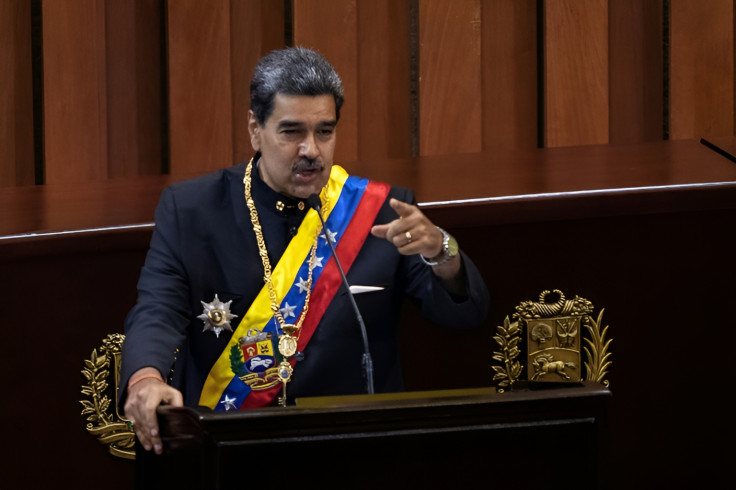
Freedom House is a European watchdog that every year publishes a wide-ranging report on the state of freedom around the world. Its latest installment shows its index has declined for 18th consecutive year, with political rights and civil liberties diminishing in 52 countries, in contrast with the 21 that made improvements.
Out of the countries which recorded a decline, nine were in Latin America. The trend, the report said, was driven by "crackdowns against the political opposition and escalating criminal violence, which continued to corrode democratic institutions."
Ecuador in particular was downgraded from Free to Partly Free because "it's elections were disrupted by criminal organizations, which killed several state officials and political candidates." It also mentioned Guatemala, which, as it happened in other countries highlighted, "the incumbent tried to control the electoral competition, hinder political opponents or prevent them from taking power after election day."
Four were considered Not Free: Venezuela, Cuba, Nicaragua and Haiti. Nicaragua saw the largest 10-year decline, reaching a score of 16 out of 100 last year after shedding 38 points. Venezuela followed suit, losing 23 points and ending 2023 with a score of 15. Haiti now has 30 points out of 100 after losing 13 points. Cuba was likely not in the ranking as a result of having curtailed political rights and civil liberties for decades now.
Talking about Venezuela, the report highlighted its attempt to "clear the field of viable opposition candidates ahead of a presidential election that was planned for 2024" but still has no clear date.
"Opposition forces organized an independent primary to find a unity candidate who would
run against authoritarian ruler Nicolás Maduro, the incumbent since 2013. Not only did the Supreme Court ban the winner, María Corina Machado, from participating in elections, but a court also ordered the suspension of the entire primary process, in which 2.4 million people had participated, and authorities threatened the organizers with criminal prosecution," the Freedom House added.
While El Salvador is considered a Partly Free country, it experienced a notable decline in freedom, the 8th largest in the world, over the past 10 years. It has now a score on 53, after being one of the countries where among other things, "leaders bent the rules to ensure their own victories in planned contests."
"El Salvador declined to Partly Free in 2019, during Bukele's first year in office, and the country's score has fallen by 24 points over the last decade," the report specified.
Nevertheless, the report noted, 22 out of the 35 countries in the region are still considered free, "making it one of the freest in the world." "The ballot box proved a powerful tool for democratic renewal, and more countries moved to lift harsh historical restrictions on reproductive health care."
Uruguay and Chile lead the pack of free countries in The Americas, with scores of 96 and 94, respectively. Argentina follows suit with 85. In North America, Canada stands as one of the freest countries in the world, with a score of 97. The U.S. has 83, while Mexico is considered a partly free country with a score of 60.
Overall, only 20% of the population lives in free countries, the lowest amount of the three categories. A majority of people live in "partly free" (42%) or "not free" (38%) countries. 22% of the population experienced declines in freedom, while only 7% saw improvements.
This year will present a major test, as countries holding about half of the world's population have held or will hold elections. "The results of these elections will shape the international environment for years to come," Freedom House warned.
Speaking about the U.S. elections in particular, the report highlighted that "harassment and intimidation of federal, state, and local politicians, election administrators, and judges pose a serious challenge."
"Threats of violence can have far reaching, harmful effects, potentially undermining compliance with election rules or deterring participation entirely. Actual violence related to political disputes can and has cost people their lives. Still haunted by the January 2021 attack on the Capitol and related court cases, Americans are heading into a decisive election starkly divided, with some questioning the very utility of fundamental democratic institutions."
© 2024 Latin Times. All rights reserved. Do not reproduce without permission.







